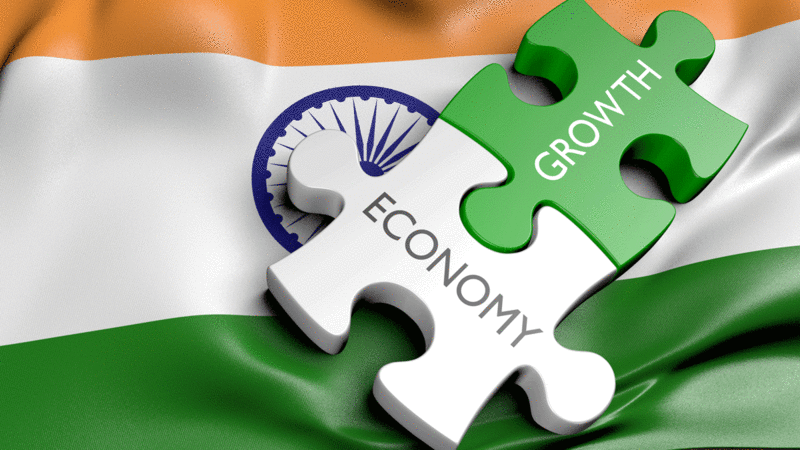There is something interesting happening at the intersections of politics and economy these days. We know that the economy is at a decline and all the government’s efforts to set it right are on the supply front, whereas the real trouble lies was far as the demand graph is concerned. For example, we can ask the banks to lend more, but if people don’t want to borrow then that is an entirely different issue. The trouble that the BJP/RSS government is facing is that if they pump in money to increase the demand they will lose the political battle. There are signs to show that there is even an unconscious awareness of this present in their machinery. My hunch is that any real effort to reform the economy will change the political perceptions so fast that we wouldn’t know what happened . This can be one of the reasons why they are trying to bribe the market sentiment by all the corporate tax cuts.
It’s not like we do not know from the past that good economics and politics in modern nation-states experience a certain kind of tension, a friction that has always been difficult to explain, and easy answers given by the general public have been ‘if we had a good king/authoritarian ruler/strong prime minister the problem would be solved’. My claim here is that this figure of a strong prime minister or an authoritarian ruler far from being a fix to this problem, on the flip side can also accelerate this problem. One can see today that the Modi government’s hesitancy to strengthen the demand side betrays his political agendas. To strengthen demand he would have to go back to schemes of the UPA like MNREGA, and put more money in public education and health, build rural roads etc. He can see that doing this would shake the delicate balance through which public opinions are being managed in the country today.
Slavoj Zizek in his books and lectures have pointed out that previously capitalism beyond a certain point always needed democracy to functions smoothly, but now this is changing when we see the emergence of China, Singapore, India etc. This he calls capitalism with Asian values, where capitalism is increasingly taking the shape of a system that no longer falls back upon democracy but instead is showing signs of being able to function without it.
I suggest this story is incomplete. In India we see something happen that takes Zizek’s version of events to another level. The cracks between modern political compulsions and economics exist since the time when Adam Smith was writing his The wealth of Nations. But today we see that the gap that caused the tension between political compulsions and economics is now bringing the whole economic system to a dead lock in India. When we say that demonetization may have been bad economics but good politics this is what we are hinting at. Good economics which may previously always had been antithetical to pragmatic political compulsions of the state, has reached to a point now (late capitalism), such that the changes in political economy would not allow earlier economic system to work at all.
To understand this we need to trace this tension between politics and economy back to emergence of the nation-states itself, where the seeds for this tension were sowed. We know that modernity is understood by breaks and continuities between having a sovereign king and a modern democracy which neutralised the position of the king. Foucault in Discipline and Punishment called this transition from sovereign power to disciplinary power, which in his later works developed into a more concrete analysis of modern forms of power or even biopower as we call it today. Where sovereign power has a king with a body, which is characterised by the symbol of the sword who in his power can ‘take life or let live’. It is the king that stands over the application of the law and its exception. In contrast biopower doesn’t have a king with a body and its essential function is to bring life itself into the centre of governance; it is characterised by ‘to make life or to let die’. In India we see the consequences of this activating with Rohingya Muslims and NRC, where the state isn’t directly killing them but merely letting them die. Question for Foucault always was how to do we understand the agency of such a power that doesn’t kill, but still actively participates in letting certain forms of life die. Today our city is full of such forms of life. What are the real ethical implications of such forms of agencies that are let loose with the emergence of bio-power is a discussion that today our politics is really struggling with.
Howsoever, when we answer the above question one thing we cannot escape and that is- we stand at the inflection point where the use of this bio-power can be unleashed in its most brutal forms. The problem is that this completely unhinges the capitalist structuring of our economy. We just do not know what effects it will have on the market. I am not saying that the economy will collapse, but a more modest claim which is it won’t allow the economy to function the way it was earlier. India’s case is particularly intriguing in this regard.
I suggest that India’s case is revealing to us a deeper antagonism of capitalism itself. We know that Adam Smith(the father of modern economy) first articulated the idea explicitly that collectively we benefit more from our acts done in our self-interest than from pure benevolent actions. Below is a quote from The Wealth of Nations making this point-
“It is not from the benevolence of the butcher, the brewer, or the baker that we expect our dinner, but from their regard to their own self-interest. We address ourselves not to their humanity but to their self-love, and never talk to them of our own necessities, but of their advantages” (The Wealth of Nations)
The transition from mercantile economy to an economic logic where productivity could grow without conquering another territory was hinged on this logic of self-interest. It is from this theory of self-interest there emerges the invisible hand of the market for Adam Smith. The point being that if everyone acts in their own self-interest, the invisible hand automatically regulates the system. Adam Smith himself was very clear that this self-interest wasn’t just pleasure seeking, but was intended to nurture all things that one associates with the self. Amartya Sen in many of his lectures have pointed this out that Adam Smith in this sense wasn’t an utilitarian at all and valued public goods. Thus, like many critics of capitalism, I don’t disagree with Adam Smith and would go with Alenka Zupncic’s analysis where she agrees with Smith that there is an ‘Other’ that protects us when we act purely in our own interest. But then how do we understand this slippage that reduces self-interest to purely pleasure seeking behaviour? To understand this slip into a subject that becomes incapable of seeing things beyond his pleasure one should I suggest take psychoanalysis seriously.
Alenka Zupancic in her book ‘What is Sexuality’ points out that the problem lies in the fact that when a system that seeks to bring self-interest itself as the point of contact with the ‘Other’, is left to itself will end becoming a pure pleasure seeking exercise, where we want the pleasure without the other, and we want the other without being dependent on the pleasure that we gain from him. She uses Schuster’s phrase to describe this- ‘The hand job of the market’. Capitalist subject doesn’t only want his pleasure but wants it unhinged from the compulsion, frictions that come with engaging with other to get them. We want these pleasures as a given that we can freely access without the need of agency of the ‘other’. This is where the subject becomes dependent on the masturbatory effects for his own subjectivity. When we confront the mythical phrase that market self-regulates we confront the horizon of this subjectivity that needs an other to only destroy it. We all know market self-regulating itself to be a lie, but we also know we have to believe this lie for the markets to function. This is the structure of the subjectivity that seeks its own pleasure in this destruction of the ‘other’, the very other that is needed to sanction the pleasure in the first place; subject has to believe in an ‘other’ to function, even if the function is the destruction of this ‘other’.
This subject that is thus born reaches its threshold when he is so dependent on his own pleasure seeking impulses that he is ready to destruct the very other without which there cannot be any pleasure. After all what would Hindutva subjectivity would be like, without the necessary pleasure that the figure of Muslim injects into this subjectivity. Can this subject hold himself together without hating this other formed through a certain idea of Muslim that has no reality. This subjectivity although reveals itself completely in today’s right-wing ideologies, but its roots lie in our own middle-class consciousness. Its first buds can be seen in the way our institutions started to change right in front of us. Schooling started to show this transition way before these developments took their present shape. RWA’s became weaponised much before Gaurakshaks emerged on the scene with their weapons. This is where we see the cracks of capitalism emerging, where the markets that needed the creation of such a subjectivity cannot in turn accommodate its effects in India. But one thing that we know about capitalism is that it thrives in crises as Zizek rightly points out. The key to counter capitalism, we should know post Stalinist experiment of mass collectivisation, cannot lie in putting it in crisis, it will only mutate further, with its worst part becoming stronger and stronger. If a way has to be found in this ;it has to be found keeping the above facts in mind.
Chetan Anand is a Research Scholar at TISS Mumbai.














